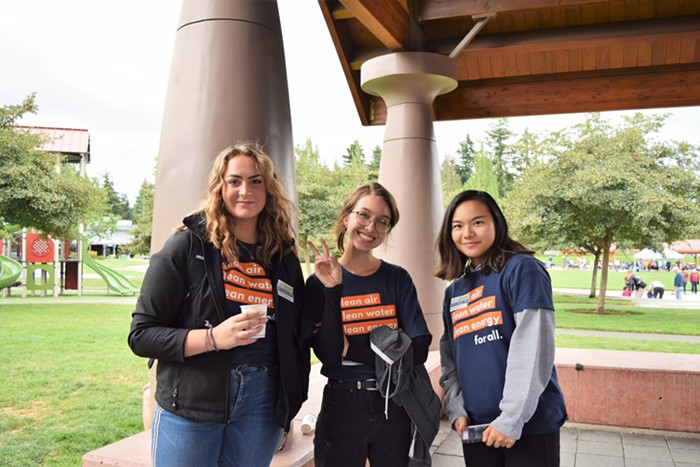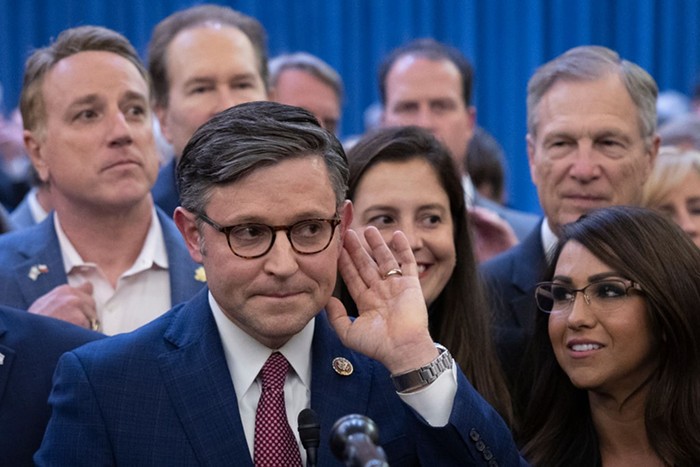
Starbucks' coffee may taste like the inside of a wood chipper but their PR is, once again, on point. The same month that Seattle's citywide ban on straws in eateries went into effect, The coffee mega giant announced that they will also be ditching single-use plastic straws in their 28,000 cafes around across the globe by 2020.
Sounds good, right? Straws aren't recyclable and there's the Great Pacific Garbage Patch to worry about, which is at least .000001 percent made up of the suckers. (Contrary to what many people think, the GPGP is more abandoned fishing gear than trash.) But, before you go nominating Starbucks for the Nobel, there's a couple problems with the straw ban we need to talk about.
As many, many disability activists have pointed out, straws may be an unnecessary accessory for able-bodied people, but for some people with disabilities, they're required to drink. As s.e. smith wrote in Bitch, "Straws represent independence for some disabled people who can’t drink on their own without one and would otherwise need the help of a caregiver to drink. Others need a straw even when drinking with assistance because of hand tremors, limited muscle control, or other issues. Telling disabled people they should rely on support or slop fluids all over themselves is infantilizing, but also dangerous: An aide isn’t always available to help someone take a sip and dehydration can be fatal."
At the same time, banning straws is a less than minuscule step forward on the path to a sustainable economy. Starbucks is better than most giant corporations when it comes to acknowledging and trying to minimize their environmental impact, but an estimated 4 billion of their cups wind up in landfills each year, despite the company's "Greener Cup" initiative.
If Starbucks really wanted to save the planet, they'd take drastic action—say, closing up shop, re-foresting coffee plantations, and converting all their stores to native plant nurseries. But this is a PR move and one that, ironically, will result in using more plastic, not less. As Christian Britschgi pointed out in Reason, the strawless cups add between .32 and .88 grams of plastic per drink. Starbucks claims that that's okay because the new lids are recyclable, but recycling has an environmental cost of its own. You don't just rinse the lid and stick it on someone else's cup: It takes water and fossil fuels and a whole lot of energy to turn that used lid into a new lid. Thomas Kinnaman, an economist at Bucknell University, says that the energy, labor, and machinery required to recycle goods is twice that needed to dump them in landfills. And landfills are exactly where most plastic ends up anyway. At best, Kinnaman found, society recycles just 10 percent of our recyclable waste—and that was before China decided to stop importing most used paper and plastic, leading to the current a recycling crisis in the U.S.
Luckily for the planet, I have a solution to the straw problem and the cup problem too. Hear me out: When I was in college, I lived in a house with a rotating cast of filthy women. Because our kitchen sink was a toxic waste dump, we instituted a rule called "One girl, one cup." Everyone got a cup, a fork, a spoon, a knife, and a plate, and all of our extraneous dished were stowed away in the basement. If you used your cup, you had to wash it because there were no other cups to choose from. This greatly reduced the filth level in our kitchen, and it could greatly reduce our waste in the U.S. too.
So, here's my proposal: Upon reaching the age of coffee-drinking (say... 12), every American will be issued one to-go cup and one long-lasting straw (maybe it's plastic, maybe it's metal, maybe it's wood or bamboo. We'll work the details out later on.) That is your cup. That is your straw. You don't get another. And when you want coffee or tea or a sickly sweet Frappuccino, you will take your cup with you to Starbucks and they'll fill it up. I know, I know, this will cost the federal government billions and we've got roads to pave and drones to strike and families seeking a better life to imprison, but—and here's the best part—if Starbucks really cares about the planet, they'll pay for it. I'm sure the corporate tax write-offs will be generous.



















